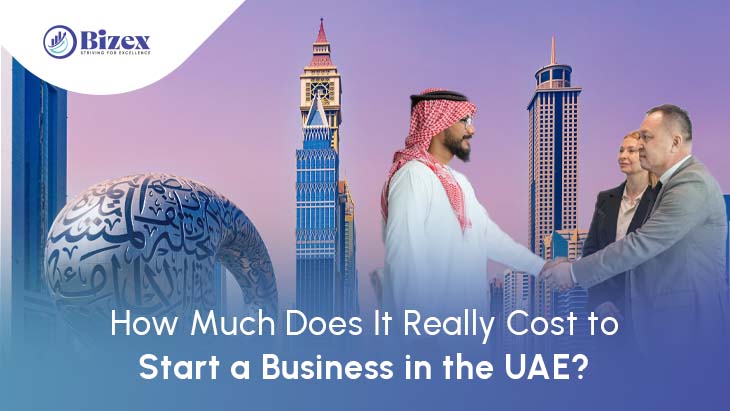Dubai has emerged as one of the most attractive destinations globally for entrepreneurs and investors who seek a stable economy, modern infrastructure, and a high quality of life. As more families aim to establish roots in this thriving emirate, relocating under an investor visa presents an appealing opportunity.
Whether you're launching a business or investing in property, the investor visa allows you to live in Dubai while providing a structured path to sponsor your family. This blog walks you through everything you need to know about obtaining and leveraging an investor visa to build a successful life in the UAE.
Understanding the Dubai Investor Visa
What Is an Investor Visa?
An investor visa in Dubai is a residence permit granted to individuals who make a qualifying investment in the UAE, usually in the form of real estate or a business entity. It is typically issued for durations ranging from two to ten years, depending on the nature and value of the investment.
Investor visas can be renewed as long as the investment is maintained, offering long-term residency benefits without the need for an employer or job sponsorship. The visa holder gains access to local services and residency rights and can extend sponsorship to their immediate family.
Key Benefits of an Investor Visa in the UAE
• Eligibility to reside legally in the UAE
• Ability to sponsor spouses, children, and dependents
• Full access to healthcare, education, and financial services
• Permission to open corporate and personal bank accounts
• Potential pathway to long-term residency through the UAE Golden Visa programme
Eligibility Criteria for a Dubai Investor Visa
1. Investment Options
To qualify for an investor visa, you must make one of the following investments:
• Invest in real estate valued at AED 750,000 or more.
• Establish or invest in a UAE-based company
• Meet the threshold for the Golden Visa through long-term investment or startup ownership
2. Financial Thresholds
Minimum investment requirements vary by visa type:
• Real estate investment: AED 750,000 (single ownership) or AED 1 million (joint ownership with a spouse)
• Company investment: AED 50,000 to AED 300,000, depending on jurisdiction and business activity
• Golden Visa: AED 2 million investment in property or business
3. Legal Requirements
Applicants must also:
• Have a valid passport
• Pass a medical fitness test
• Obtain health insurance valid in the UAE
• Have clean legal records and no history of criminal activity
• Submit proof of investment and relevant legal documentation.
Types of Investor Visas in the UAE
1. Property Investment Visa
Individuals who purchase a qualifying freehold property in Dubai receive this visa. Mortgages cannot exceed 50% of the property's value, and its worth must meet or exceed AED 750,000.
The investor must hold the property for at least three years, and the visa duration is typically two years, renewable upon continued ownership.
2. Company Formation Visa
Entrepreneurs who start or invest in a registered UAE company can obtain this visa. The investment must be proven through a trade licence, Memorandum of Association (MOA), and bank statements.
Depending on the free zone or mainland registration, this visa typically lasts for two or three years. It’s an ideal option for those actively involved in daily business operations.
This process typically requires professional guidance, including company formation services in Dubai, to ensure compliance with local regulations.
3. Golden Visa (Long-Term Residency)
The UAE Golden Visa is a prestigious long-term residency option for high-net-worth individuals. It offers a 5 or 10-year visa depending on investment levels and other qualifications. It’s especially suitable for investors looking for stability, and it allows full family sponsorship with fewer renewal requirements.
Step-by-Step Process to Obtain an Investor Visa
Step 1: Choose the Right Investment Option
Start by assessing your goals are you looking to live off rental income or actively manage a business? Your answer will help you choose between real estate investment and company formation.
Step 2: Register the Business or Buy Property
• Real estate: Ensure the property is in a designated freehold area, and confirm its eligibility through the Dubai Land Department (DLD).
• Business setup: Decide between a mainland or free zone company. Submit documents including passport copies, business plans, and name reservation forms.
Step 3: Apply for Initial Entry Permit
Once your investment is validated, apply for an entry permit. This allows you to enter Dubai for visa processing. It’s valid for 60 days.
Step 4: Complete Medical and Emirates ID
Undergo a mandatory medical fitness test and apply for your Emirates ID. The ID will serve as your national identification for banking, utilities, and governmental services.
Step 5: Visa Stamping
Submit all required documents to immigration authorities. Upon approval, your investor visa will be stamped on your passport. You’re now a legal resident of the UAE.
Bringing Your Family to Dubai
1. Who Can You Sponsor
Investor visa holders can sponsor:
• Spouse
• Children under 25 (sons) and unmarried daughters (any age)
• Parents (with specific conditions)
• Domestic workers (under a separate category)
2. Sponsorship Requirements
To sponsor family members, the investor must meet income and accommodation requirements. These include:
• Valid tenancy contract or property deed
• Minimum income threshold (typically AED 4,000 to AED 10,000/month)
• Adequate living space, as per family size.
3. Documents Needed
• A marriage certificate is required, and it must be attested and translated if necessary.
• Birth certificates for children
• Passport copies
• Medical insurance
• Emirates ID applications
Setting Up Life in Dubai
Housing and Real Estate
Expats can choose to rent or buy. Rental contracts must be registered under Ejari. Popular residential areas include:
• Dubai Marina
• Jumeirah Lakes Towers (JLT)
• Arabian Ranches
• Mirdif (family-friendly and affordable)
Schooling for Children
Dubai hosts a wide array of international schools with curricula such as British, American, IB, Indian, and French. It’s advisable to apply early, as popular schools have waitlists.
Healthcare Access
With mandatory health insurance, you can access both public and private healthcare. Dubai has globally accredited hospitals like Mediclinic, American Hospital, and Rashid Hospital.
Cost of Living in Dubai
1. Housing Costs
• Studio apartments: AED 3,000–6,000/month
• 2-bedroom apartment: AED 7,000–15,000/month
• Villas: AED 10,000–25,000/month depending on location
2. Education Costs
• Budget international schools: AED 20,000–40,000/year
• Premium schools: AED 60,000–100,000/year
3. Daily Expenses
• Groceries: AED 1,500–2,500/month (family of 4)
• Transportation: AED 300–800/month
• Dining and entertainment: AED 1,000–2,000/month
Tax Benefits for Investors
No Personal Income Tax
Dubai is known for its tax-free personal income structure. This allows families to enjoy higher disposable incomes compared to many Western countries.
Business Tax Exemptions
• Free zone companies often enjoy 100% corporate tax exemption for a specified period.
• No withholding tax or capital gains tax
• The recent introduction of a 9% corporate tax applies only to profits above AED 375,000 for mainland entities.
This is particularly useful when navigating financial regulations via TAX & VAT Services in Dubai for complete compliance and planning.
Common Challenges and How to Overcome Them
1. Navigating Bureaucracy
Visa processes involve multiple steps, approvals, and documentation. To avoid delays, it’s best to work with professional visa consultants or PRO service providers.
2. Adapting to Culture
While Dubai is cosmopolitan, respecting Islamic values is important. Understanding cultural norms can ease social and professional integration.
3. Language and Lifestyle Adjustments
English is widely spoken, but learning some Arabic can help in everyday interactions. Dubai offers a vibrant expat lifestyle, but adjusting to the weather and pace may take time.
Legal and Compliance Considerations
Renewing the Visa
Ensure your investment remains active and all documents (like your Emirates ID, tenancy, and insurance) are up to date. Renewal processes often involve repeating the medical and ID application steps.
Complying With UAE Laws
Understand labour laws, rental rules, and family sponsorship regulations. Violations may lead to fines or visa cancellation.
Exit Strategies and Repatriation
If you decide to return to your home country, cancel all visas properly, deregister your business, and settle outstanding dues to avoid legal complications.
Choosing the Right Free Zone or Mainland Setup
Pros and Cons of Each
Free Zones:
• Full ownership
• Simplified setup process
• Limited to operating within the free zone or internationally
Mainland:
• Access to the wider UAE market
• Can trade directly with UAE residents and companies
• Subject to local regulations and taxes
Free Zone vs Mainland: Which One’s Better?
If your primary goal is export, e-commerce, or professional services, a free zone may be more cost-effective. For retail, construction, or large-scale operations, mainland registration is typically preferred.
Expert Tips for a Smooth Transition
Work With a Local Consultant
Navigating the UAE’s legal and regulatory frameworks can be complex. Working with a local business consultant can save time and avoid costly mistakes.
Join Expat Communities
Connecting with fellow expats through social groups, professional networks, and online platforms can help ease the emotional and logistical aspects of relocating.
Be Prepared Financially and Emotionally
Relocation involves more than just logistics. Budgeting for unexpected expenses and mentally preparing your family will help in the transition process.
Conclusion
Relocating to Dubai through an investor visa offers a viable pathway for entrepreneurs and families seeking a prosperous future in a dynamic, business-friendly environment. With its exceptional infrastructure, safety, and quality of life, Dubai remains one of the top destinations for global investors.
Taking the right steps, from choosing the appropriate investment route to preparing for family life in the UAE, can ensure your relocation is smooth, legal, and sustainable. Whether you’re aiming to start a company or purchase real estate, the investor visa gives you the flexibility and stability needed to thrive in the UAE.










 991
991 


Leave a reply